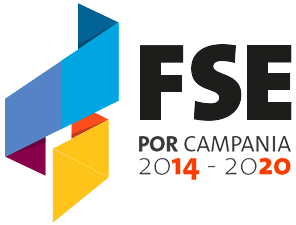Settlement Needs Defendants to pay for Almost $1 Million
Share This Site
- Linked-In
A Southern Dakota-based lending that is payday and its particular owner will probably pay $967,740 towards the U.S. Treasury included in a settlement resolving FTC costs which they utilized unjust and misleading techniques to gather on pay day loans and forced debt-burdened customers to go Southern Dakota and search before a tribal court that would not have jurisdiction over their situations.
“Debt enthusiasts cannot garnish consumers’ wages with out a court order, and additionally they cannot sue customers in a tribal court that doesn’t have actually jurisdiction over their cases,” stated Jessica deep, Director of this FTC’s Bureau of customer Protection. “Regardless of tribal affiliation, collectors must conform to federal legislation.”
Based on the problem filed because of the FTC, Webb and their businesses offered short-term, high-fee, unsecured payday advances of $300 to $2,525 to customers through the entire nation, marketing on television and on line. The FTC charged that defendants illegally attempted to garnish customers’ wages with no court order, and desired to control the system that is legal force borrowers to show up before the Cheyenne River Sioux Tribal Court in Southern Dakota, which didn’t have jurisdiction over their instances.
The defendants additionally attempted to acquire court that is tribal to garnish customers’ wages, in line with the agency.
Underneath the terms of the settlement, Martin A. Webb and their businesses have decided to a $550,000 civil penalty for breaking the Credit techniques Rule – which prohibits payday loan providers from needing borrowers to consent to possess wages taken straight from their paychecks in case of a default. Carrying out a partial judgment in benefit of this FTC in September 2013, the defendants surrendered $417,740 in ill-gotten gains stemming from their previous training of trying to garnish customers’ wages without court purchases.
The settlement prohibits them from further unfair and deceptive practices, and bars them from suing any consumer in the course of collecting a debt, except for bringing a counter suit to defend against a suit brought by a consumer in addition to the monetary payment imposed on the defendants.
For customer information regarding payday advances see: pay day loans.
Along with Webb, the FTC’s issue and amended problem known as as defendants Payday Financial, LLC, Great Sky Finance, LLC, Western Sky Financial, LLC, Red Stone Financial, LLC, Financial Systems, LLC, Management Systems, LLC, 24-7 Cash Direct, LLC, Red River Ventures, LLC, and High Country Ventures, LLC.
The Commission vote approving the settlement had been 4-0. Regarding the U.S. District Court for the District of Southern Dakota authorized the settlement and entered an order that is final judgment.
The Federal Trade Commission works for customers to avoid fraudulent, misleading, and unjust company techniques also to offer online title loans Kentucky residents information to simply help spot, end, and get away from them. To register a grievance in English or Spanish, go to the FTC’s on the web Complaint Assistant or phone 1-877-FTC-HELP (1-877-382-4357). The FTC gets in complaints into customer Sentinel, a safe, online database available to significantly more than 2,000 civil and unlawful police force agencies when you look at the U.S. and abroad. The FTC’s internet site provides free informative data on a selection of customer subjects. Such as the FTC on Twitter, follow us on Twitter, and donate to press announcements when it comes to latest FTC news and resources.
Contact Information
Betsy LordanOffice of Public Affairs 202-326-3707
LaShawn Johnson, Nick Singhvi, Michelle GrajalesBureau of Customer Protection 202-326-3057




